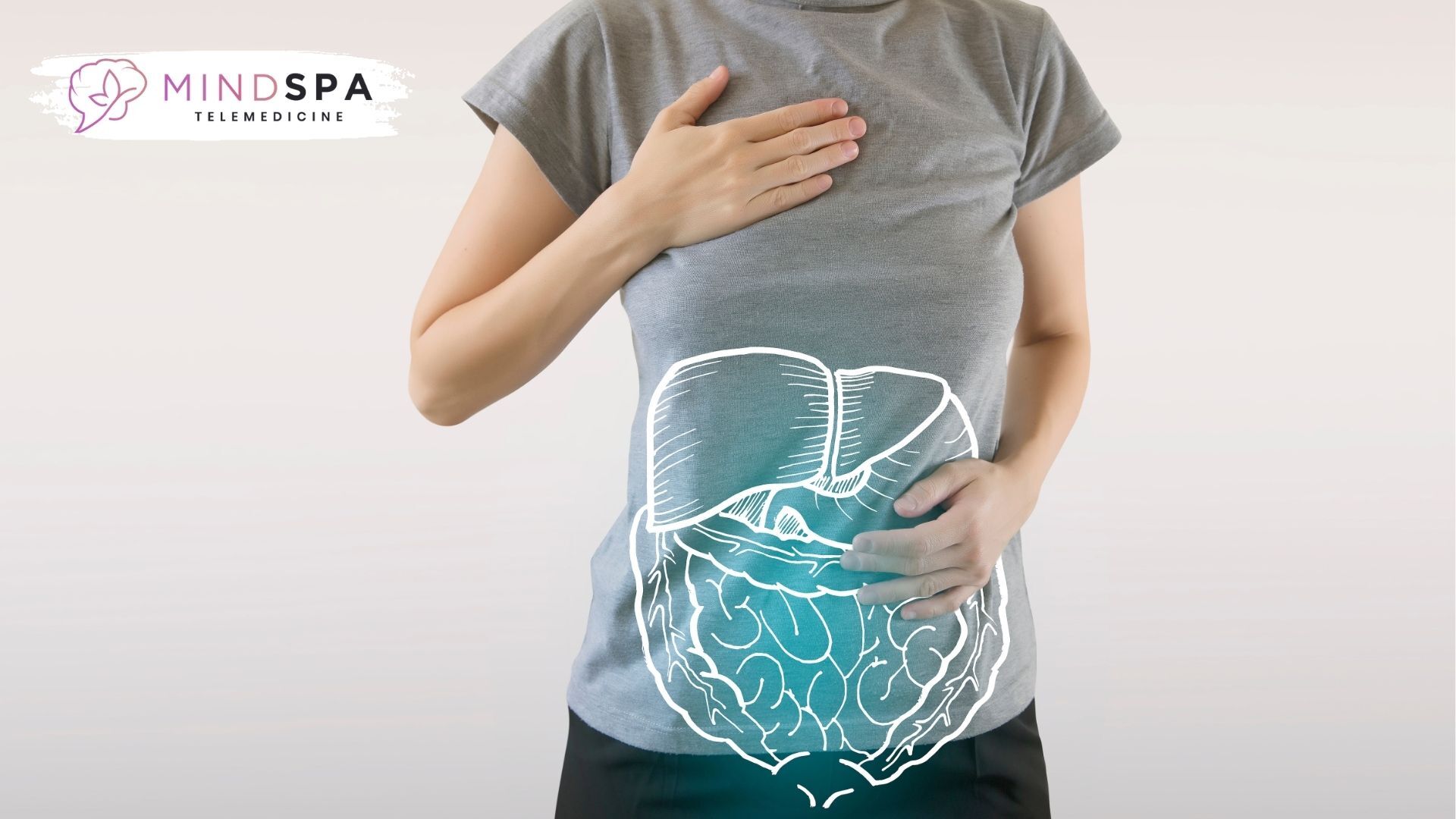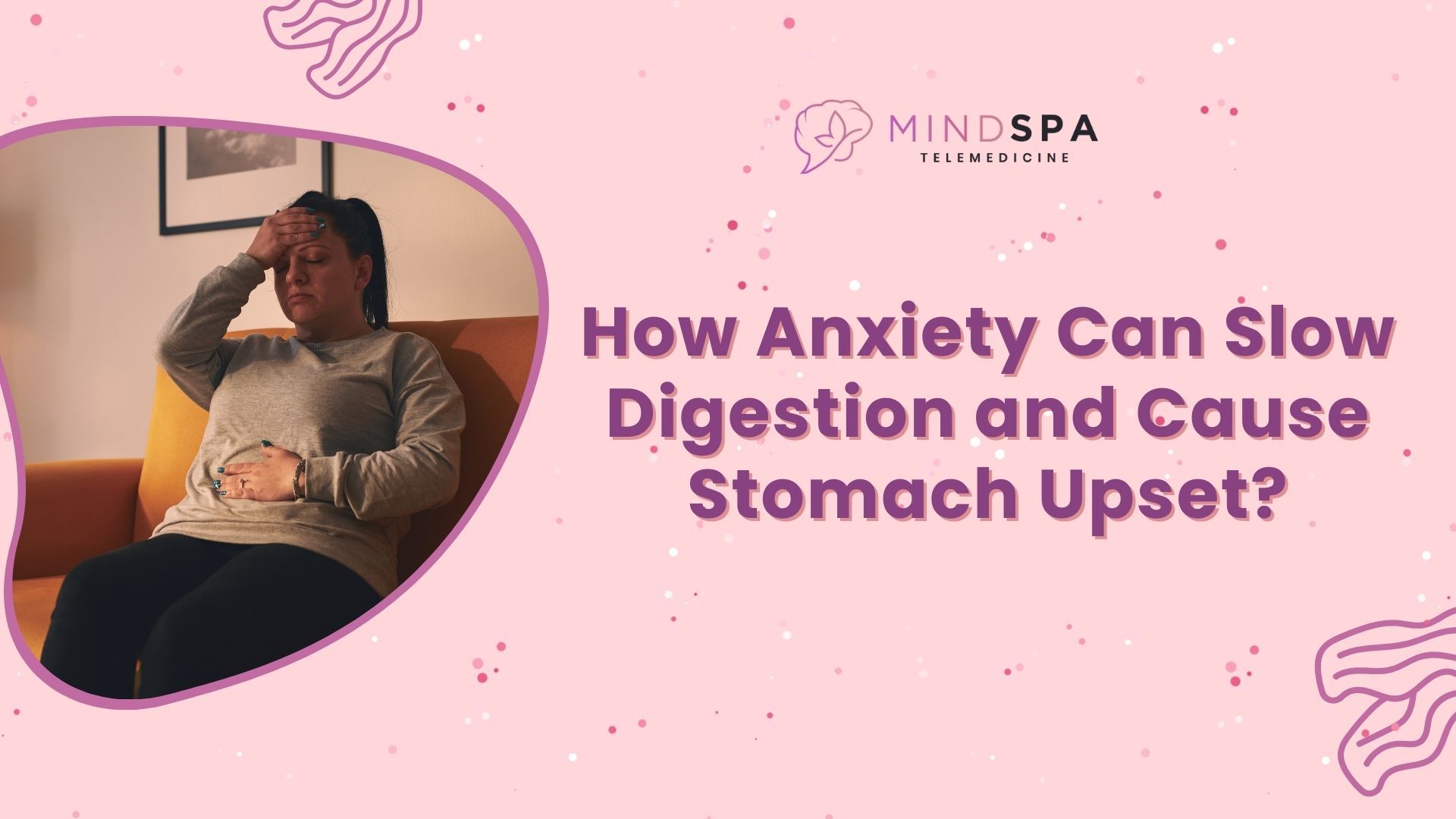Anxiety, which is one of the mental conditions common among many people, is known to affect our organs, and in this case, the digestive system, one way or the other. The impact of anxiety on the gastrointestinal tract is not very simple; rather, it is complicated, and studies have shown that they are connected.
Any time we become anxious, the stress in the body is triggered, which means that there is the production of hormones such as adrenaline and cortisol. These hormones produced during anxiety can affect the digestive processes and cause as well a number of gastrointestinal (GI) disorders.
In this guide, let’s take a look at if anxiety can slow digestion and cause stomach upset at the same time!
How Anxiety Slows Digestion
One of the primary ways that anxiety can influence the digestive system is distorting its normal function by slowing it down. The effect, however, takes over during stressful situations, when blood is reallocated from the gut to the extremities in preparation for ‘fight-or-flight’ activities which more often than not happen with a tensed body. Consequently, this may lead to decreased secretion of digestive juices, slow gastric emptying which causes fullness, distension, and constipation.
Not to mention the fact that anxiety degrades the function of the mechanisms of gut food transport as well. This is referred to as a sub-brain because it is full of millions of nerves connected to the Central Nervous System. Since worrying involves that network, it gets disturbed and this affects the gut motility which might make a person suffer from irritable bowel syndrome (IBS).

Anxiety-Induced Stomach Upset
Anxiety does not only hinder the process of digestion. It can aggravate some conditions, stomach upset and nausea for example. Stress purposed Hormones which are released whenever an individual is anxious can be known to cause stimulation to the Vagus nerve that runs from the brain to stomach. This stimulation causes overproduction of stomach acids which may cause heart burns, food indigestion and even in extreme cases, vomiting.
Moreover, the stress response may also lead to the release of inflammatory substances into the body which will also lead to more digestive complications such as gastritis or peptic ulcers.

Strategies for Managing Anxiety-Related Digestive Issues
Fortunately, there are several strategies that individuals can use to help manage the impact of anxiety on their digestive system:
1. Stress Management Techniques:
- Practice relaxation techniques, such as deep breathing, meditation, or yoga, to help reduce stress and anxiety.
- Engage in regular physical activity, which can help alleviate stress and promote healthy digestion.
- Seek support from a mental health professional, such as a therapist or counselor, to develop effective coping mechanisms for managing anxiety.
2. Dietary Modifications:
- Identify and avoid anxiety-triggering foods that may exacerbate digestive issues, such as spicy, fried, or high-fat foods.
- Incorporate gut-friendly foods, such as probiotics, fiber-rich vegetables, and fermented foods, to support a healthy digestive system.
- Stay hydrated by drinking plenty of water throughout the day.
3. Lifestyle Changes:
- Establish a regular sleep routine, as adequate rest is essential for both physical and mental well-being.
- Limit the consumption of caffeine, alcohol, and tobacco, as these can further disrupt the digestive system.
- Engage in relaxation activities, such as reading, listening to music, or spending time in nature, to help counteract the effects of stress.

Importance of Seeking Professional Help
Although self-management techniques can be useful for anxiety-induced gastrointestinal tract issues, it is also important to understand when it may be time to seek help from an outsider. A healthcare practitioner can conduct thorough evaluations, exclude other possible medical conditions, and prepare specific plans to treat the problems from their source.
Seeking medical care for digestive system abnormalities is common practice as the National Institute of Diabetes and Digestive and Kidney Diseases [NIDDK] puts it when there is onset of any of the digestive system disabilities that persist over a long demand and or are very incapacitating.
When to Seek Medical Attention
Should anxiety-induced digestive disturbances become a recurrent theme or aggravate, then medical intervention should be sought. One’s gastroenterologist or psychiatrist will most likely understand the primary cause of the problem and design a suitable intervention.
- There are some indications that one may need to visit the healthcare provider:
- There is continued or worsening abdominal pains, distension or constipation
- One suffers from unintended loss of weight and or diarrhea
- There is evidence of blood in either vomit or stool
- There are swallowing difficulties or issues related to swallowing
- Any symptom that affects one’s day-to-day or general enjoyment of life.
By managing the anxiety-digestion relationship and applying ways of controlling it, one is bound to improve their digestive health and general health.
Seeking Professional Help at Mindspa
At Mindspa, our healthcare provider team specifically focuses on tackling anxiety and its related physical symptoms, especially the ones affecting the digestive system.

In a mindfulness consultation, the providers at Mindspa will assess the underlying reasons for your digestive discomforts and consider a mental and physical approach to develop a treatment strategy for you. It could be the best option consisting of the following elements:
- Cognitive Behavioral Therapy (CBT) to alleviate tensions and control over-worrying, which contributes to uneasiness
- Medications in order to correct hormonal or central nervous system disorders present
- Gains in health through modification of diet patterns and way of life
- As appropriate, additional services and consultations will be provided to other specialties, gastroenterology for instance.
To book a consultation visit the Mindspa website. Don’t allow anxiety to impair your digestive system further – make a decision to embark on the new road to healthy, happy, and well-handled life.
Related Questions
What are the effects of anxiety on my digestive system?
Anxiety can lead to overeating and subsequently distention, constipation, and a heavy feeling in the abdomen and also suppress the process of digestion. Moreover, it may cause their excess secretion and hence, heartburn and nausea. The stress response associated with anxiety adversely affects the therapeutic effects of the gut and brain connections impairing any digestive upsets.
How can digestive problems from anxiety do not get worse?
Some of them are, for example, improvement of one’s diet and adding in moderate exercise, practicing stress management techniques meditation, yoga, and deep breathing, getting enough rest and removing stimulants like alcohol or caffeine and tobacco. It is equally necessary to recognize the profound role that the healthcare providers play in the management of such cases by providing extensive evaluation and patient specific intervention.
Do I need help with digestive issues related to anxiety?
You should consult your doctor if you have persistent or worsening digestive symptoms, including but not limited to abdominal cramps, swelling, constipation, diarrhea, unexplained weight loss, or difficulty in swallowing. Such signs may suggest the presence of a more serious medical issue that may need evaluation and intervention from a specialist.

